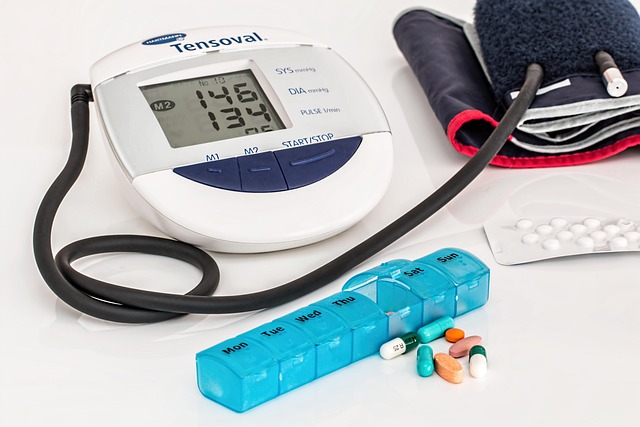Medications Linked to Kidney Disease Risks
Medication plays a vital role in managing health, yet certain drugs pose risks to kidney health, particularly those like NSAIDs and ACE inhibitors. Recognizing nephrotoxicity and monitoring drug use are essential, along with preventive measures and understanding treatment options for drug-induced kidney damage. Effective strategies in medication management protect kidney health and ensure overall well-being.

The relationship between medications and kidney health is more complex than many people realize. While prescription drugs are designed to treat various conditions and improve quality of life, certain medications can inadvertently cause kidney damage or accelerate existing kidney disease. Healthcare professionals estimate that drug-induced kidney problems account for approximately 20% of all acute kidney injury cases in hospitalized patients.
How Certain Medications Can Cause Kidney Damage
Kidneys filter waste products and excess substances from the blood, making them particularly vulnerable to toxic effects from medications. When drugs are processed through the kidneys, high concentrations can accumulate in kidney tissues, potentially causing cellular damage. Some medications reduce blood flow to the kidneys, while others directly damage kidney cells or cause inflammation. The risk increases with higher doses, longer treatment duration, and when multiple potentially harmful medications are used simultaneously.
Certain patient populations face elevated risks, including older adults, individuals with pre-existing kidney disease, diabetes, heart disease, or dehydration. The kidneys’ filtering capacity naturally declines with age, making older patients more susceptible to medication-related kidney damage.
Medications Commonly Linked to Kidney Damage
Nonsteroidal anti-inflammatory drugs (NSAIDs) represent one of the most significant medication-related kidney risks. Common NSAIDs include ibuprofen, naproxen, and diclofenac. These medications can reduce kidney blood flow and cause acute kidney injury, especially when used long-term or in high doses.
Antibiotics, particularly aminoglycosides like gentamicin and tobramycin, can cause direct kidney cell toxicity. Other concerning antibiotics include vancomycin and certain sulfonamides. Contrast dyes used in medical imaging procedures can also trigger kidney problems, especially in patients with existing kidney disease or diabetes.
Blood pressure medications, while generally protective of kidney function, can occasionally cause problems. ACE inhibitors and ARBs may initially cause temporary kidney function changes, though they typically provide long-term kidney protection. Diuretics can lead to dehydration and kidney stress if not properly monitored.
Cancer chemotherapy drugs, including cisplatin, carboplatin, and methotrexate, are known for their potential kidney toxicity. Immunosuppressive medications used after organ transplants also carry kidney risks.
Preventive Measures and Monitoring
Preventing medication-induced kidney damage requires proactive communication between patients and healthcare providers. Always inform your doctor about all medications, supplements, and over-the-counter drugs you’re taking. This includes herbal supplements, which can interact with prescription medications or cause kidney damage independently.
Regular kidney function monitoring through blood tests measuring creatinine and estimated glomerular filtration rate (eGFR) is crucial for patients taking potentially harmful medications. Healthcare providers may also order urine tests to detect early signs of kidney damage.
Staying well-hydrated helps protect kidney function, especially when taking medications that can affect the kidneys. However, patients with heart failure or other conditions requiring fluid restrictions should follow their doctor’s specific guidance.
Dose adjustments based on kidney function are essential for many medications. Healthcare providers calculate appropriate doses using kidney function measurements to minimize risks while maintaining therapeutic effectiveness.
Treatments for Drug-Induced Kidney Damage
When medication-induced kidney damage occurs, the primary treatment involves discontinuing or reducing the offending medication when medically appropriate. Healthcare providers must carefully balance the benefits of continued treatment against the risks of progressive kidney damage.
Supportive care measures include maintaining proper hydration, managing blood pressure, and treating any underlying conditions that might worsen kidney function. In severe cases, patients may require dialysis to support kidney function while the kidneys recover.
Some patients benefit from switching to alternative medications with lower kidney toxicity risks. For example, patients requiring long-term pain management might transition from NSAIDs to other pain relief strategies or medications with different mechanisms of action.
Close monitoring during recovery is essential, as some medication-induced kidney damage may be reversible if caught early, while other cases may result in permanent kidney function reduction.
Why You Should Learn More About Kidney Health Protection
Understanding medication-related kidney risks empowers patients to make informed healthcare decisions and advocate for their kidney health. Many people take multiple medications without fully understanding the cumulative risks to their kidneys.
Educating yourself about kidney health protection strategies can help prevent irreversible damage. Simple measures like reading medication labels, asking pharmacists about kidney-related side effects, and maintaining regular medical checkups can significantly impact long-term kidney health outcomes.
Kidney disease often progresses silently, with symptoms appearing only after significant damage has occurred. By learning about medication risks and implementing protective strategies early, you can help preserve kidney function and avoid the serious complications associated with advanced kidney disease.
Working closely with healthcare providers to develop personalized medication management plans ensures that you receive necessary treatments while minimizing kidney-related risks. This collaborative approach to healthcare can help maintain both your overall health and kidney function for years to come.
This article is for informational purposes only and should not be considered medical advice. Please consult a qualified healthcare professional for personalized guidance and treatment.




